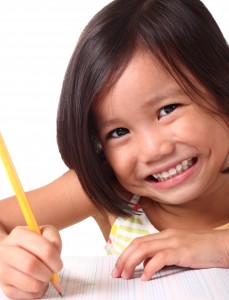By David Barber
 Decades of research confirm that summer learning loss is real. According to a report released in June 2011 by the RAND Corporation, the average summer learning loss in math and reading for American students amounts to two months per year. A study from Johns Hopkins University of students in Baltimore found that about two-thirds of the achievement gap between lower- and higher-income ninth graders could be explained by summer learning loss during the elementary school years. This learning loss is cumulative, summer after summer. It has a tremendous impact on students’ success, including high school completion, post-secondary education, and work force preparedness.
Decades of research confirm that summer learning loss is real. According to a report released in June 2011 by the RAND Corporation, the average summer learning loss in math and reading for American students amounts to two months per year. A study from Johns Hopkins University of students in Baltimore found that about two-thirds of the achievement gap between lower- and higher-income ninth graders could be explained by summer learning loss during the elementary school years. This learning loss is cumulative, summer after summer. It has a tremendous impact on students’ success, including high school completion, post-secondary education, and work force preparedness.
This waste and significant skills loss that all kids suffer over summer is absolutely preventable. According to the RAND report, good summer programs with individualized instruction, parental involvement, and small classes can keep children from falling behind and reduce the achievement gap.
Here are some things that you can do for your kids this summer to help them avoid summer learning loss:
1. Research and enroll your kids in academic tutoring or a summer program with a strong emphasis on educational components. The National Summer Learning Association recommends that parents choose a program that provides a minimum of 2 two-hour long tutoring sessions per week during the summer, and that they choose a program that begins with Mathematics and Reading Assessments to help determine and address the real-time needs of their children.
2. Research and invest in reading and mathematics workbooks, games and other educational materials. Encourage your child to devote a minimum of one hour per day at a specific time to working on these materials.
3. Invest in books and periodicals that will interest your children and set aside some time for reading each day. Lead by example, and read your books while they read theirs. If you show your kids by your actions that their academics are a top priority, then research shows that they will follow suit.
4. Set limits for computer, television and video game time.
5. Find fun, educational activities to do with your kids on a regular basis.
6. Consistent exercise and proper nutrition are the most important components for a healthy, happy brain. Encourage your children to eat whole foods, avoid processed foods and sugars, and to exercise on a regular basis.
7. Incorporate fun and learning together. Some suggestions are playing board games with educational components, doing Sudoku or other puzzles together, using art and/or side walk chalk to practice spelling and math, and regularly visiting museums, zoos, parks, and historical sites. When using summer workbooks, set an age appropriate time/problem goal, and reward your children when they reach that goal.
Utilizing these strategies will help you to ensure that your kids are able to retain the knowledge they have earned over the previous school year and will help them to reach ahead academically to start their next school year off with advanced knowledge and skills. This will lead to better grades, increased self- confidence, and success.
David Barber is the Director of Operations for WooHawaii – Windows of Opportunity Tutoring in Hawaii. For more information on summer learning loss or summer learning programs, call 808-344- 8468 or visit their website at www.WooHawaii.com.



